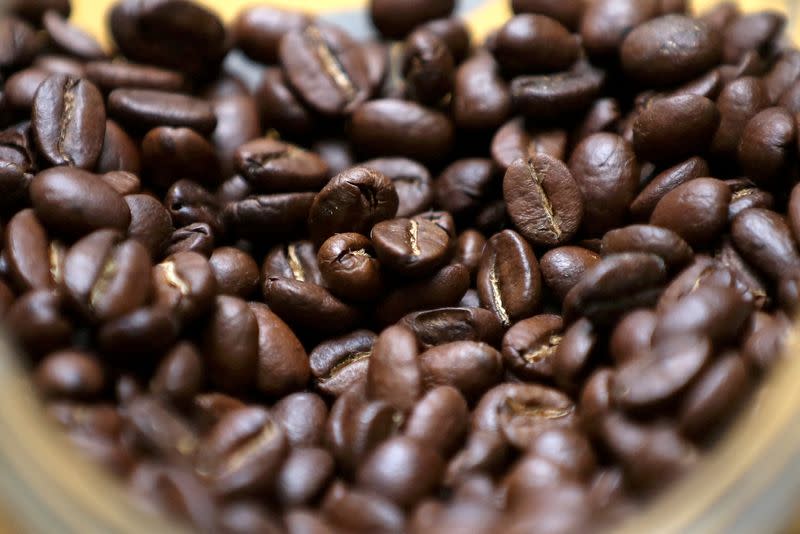Food prices to edge down in 2023 as recession looms - Rabobank

By Maytaal Angel
LONDON (Reuters) - Prices for agricultural commodities like coffee, feed grains and oilseeds could dip next year as many major economies enter recession, but they will remain high in historic terms, Rabobank said in a report on Wednesday.
The bank said consumers face a darkening macro-economic picture, with energy shortages, geopolitical danger and ongoing shortages of some key commodities like wheat boding ill for global food security.
Wheat remains acutely affected by the Russia-Ukraine war and the bank sees a 6 million tonne deficit next year, thanks also to uncertain weather prospects in the European Union, the United States and Argentina.
Elsewhere, Rabobank sees coffee demand growing well below average levels at 1.5%, with benign weather leaving the market in a 4 million bag surplus. It sees relatively low sugar prices meanwhile thanks again largely to benign weather.
"Agricultural prices might recede (yet) that’s not because production will improve significantly but because demand is set to be so weak," said Carlos Mera, the bank's head of agricultural commodities market research.
With energy, labour and other costs surging, agricultural commodity prices are about 50% higher than pre-pandemic times, the bank noted.
(Reporting by Maytaal Angel; Editing by Kirsten Donovan)

 Yahoo Finance
Yahoo Finance 